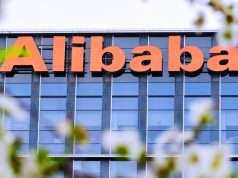
(Singapore, 27.11.2025)China’s real estate crisis returned to the spotlight this week after China Vanke Co., one of the country’s largest and previously most trusted developers, asked to delay repayment on a major onshore bond for the first time. The unexpected move has shaken investor confidence and fueled concerns about Beijing’s commitment to supporting troubled developers—even those with strong state backing.
Vanke said in a filing late Wednesday that it wants to postpone paying back the principal on a 2 billion yuan (S$367 million) note that matures on December 15. The company will meet bondholders on December 10 to discuss the proposal. For a developer long seen as relatively stable, the request was a major surprise.
According to Bloomberg, the proposal drew an immediate and strong reaction from market watchers. Yao Yu, founder of Shenzhen-based rating agency RatingDog, told the news outlet that the extension request was “very surprising to the market,” adding that the support Vanke had received from its largest state shareholder now seems “suddenly meaningless.”
A New Warning Signal for China’s Housing Market
Vanke’s financial troubles have become a symbol of the broader risks facing China’s housing market, which has struggled for several years under the weight of record defaults, weak sales and slowing economic growth. Policymakers have tried to revive the sector without appearing to rescue individual companies, a balancing act that has become harder as more large developers show signs of stress.
The bond extension request came after sharp declines in Vanke’s debt and shares earlier this week. Several of the company’s local bonds plunged so quickly they triggered temporary trading halts. Its dollar bond due in 2027 dropped to a distressed level of about 40 cents on the dollar. The pressure also spilled into equity markets, with Vanke’s Hong Kong-listed stock sliding 6.3% on Wednesday to HK$3.88—its lowest level in more than a year.
Investors had previously expected Vanke to pay its near-term debts on time. Two notes maturing in December were trading close to par value before the latest developments. In addition to the 2 billion yuan bond due on December 15, Vanke faces repayment of another 3.7 billion yuan (S$678 million) note on December 28.
State Support No Longer Assured
For much of the past year, Vanke relied heavily on funding help from its biggest shareholder, state-owned Shenzhen Metro Group. The transit operator provided around 30 billion yuan (S$5.5 billion) in loans to help the developer manage payments and avoid default.
But that support now appears uncertain. Shenzhen Metro recently signaled tighter borrowing requirements for Vanke, raising doubts about how much more assistance the company can receive. The timing worsened investor worries, especially as Vanke approaches a large number of debt maturities.
According to calculations based on company disclosures, about 13.4 billion yuan of Vanke’s onshore bonds will mature or come up for early redemption by the end of June next year. That amount far exceeds the unused loan capacity it still has under its agreement with Shenzhen Metro.
Under that pact, Vanke can access a maximum of 22 billion yuan in loans from the beginning of 2025 to its next annual general meeting expected by June. But because the company has already tapped much of that credit line, it has limited room left until mid-2026.
Some analysts warn that Vanke has lost the ability to generate sufficient internal cash flow, meaning it relies heavily on external funding to stay afloat. Zhang Dawei, chief analyst at Centaline Property, said the company may be able to survive for now if Shenzhen Metro continues lending, but that alone will not restore the developer to full health.
Investor Confidence Under Threat
The bond proposal comes at a critical moment. If the plan to delay repayment goes forward, it will require approval from at least 90% of noteholders, according to the bond’s terms. Securing that level of support may be difficult as investors weigh whether a delay signals deeper financial problems.
Some analysts warn the consequences could stretch beyond Vanke. Li Gen, founder of Beijing G Capital Private Fund Management Center, said a default by Vanke would undermine the impact of government rescue efforts introduced earlier to stabilize the housing market. It could also accelerate home-price declines and spark fresh scrutiny of other state-owned developers.
The fear is that if even a major builder backed by a state-owned shareholder cannot avoid restructuring its debts, confidence in the entire sector could weaken further.
China has been considering various measures to help revive housing demand, including subsidizing interest costs for new mortgages. But earlier efforts introduced last September provided only a brief boost before fading again.
Global financial institutions remain cautious. UBS expects home prices to fall for at least another two years, while Fitch Ratings said last month that new home sales could decline by as much as 20% before stabilizing.
Regulators are also stepping up oversight. According to an official report in Shanghai Securities News, financial watchdogs are increasing checks on violations in the bond market, especially around poor disclosures related to defaults and risks.
Vanke reported a wider loss in the third quarter and is expected to see annual contracted sales fall more than 40% to around 138 billion yuan. The steep drop highlights the ongoing pressure on China’s property sector and the hurdles developers face in generating cash.
The coming weeks will be critical. With two major bond maturities in December and a heavy schedule of repayments through mid-2026, Vanke must convince investors it has a workable plan to bridge its funding gap. Whether bondholders will agree to extend repayment—and whether Shenzhen Metro will continue to provide support—remain the key questions.
For now, Vanke’s troubles have once again drawn attention to the deep challenges facing China’s real estate market. The outcome may determine not just the future of one developer, but also investor confidence in the entire sector.





































